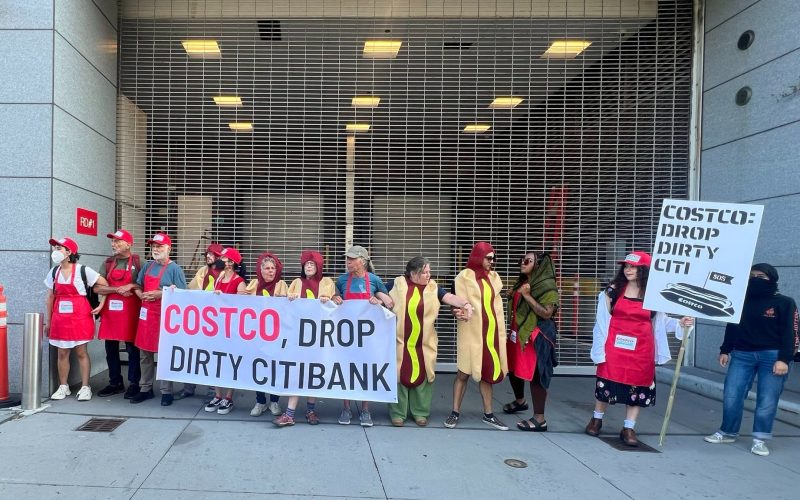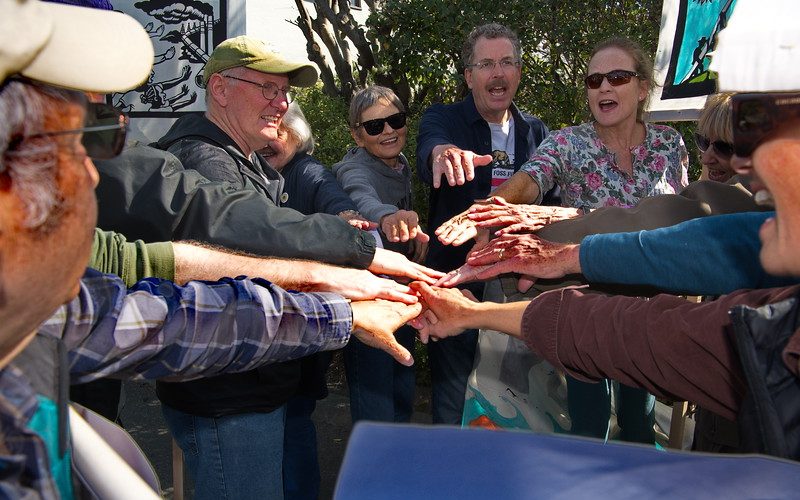Status update on state legislation and Third Act working groups' efforts to build public support for bills that will create "Climate Superfunds" by requiring fossil fuel companies to pay their fair share for their contributions to climate change impacts and damages.
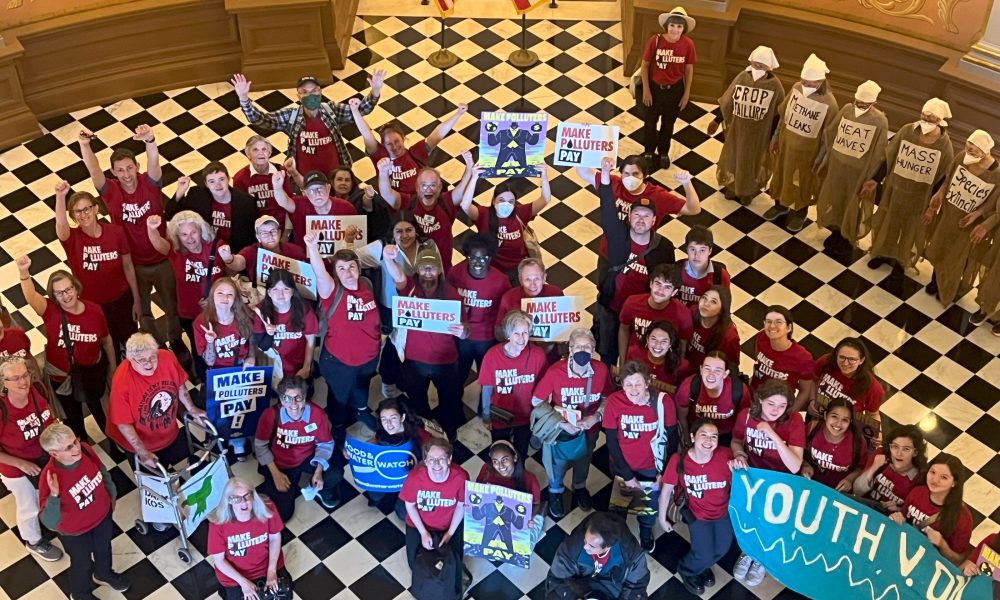
What is a “Climate Superfund”?
With climate extremes and disasters growing year after year – with 2024 being the hottest year on record, and 2025 starting off with horrific Los Angeles wildfires, the most costly un-natural disaster ever in the US – it is understandable that communities, residents, voters, and taxpayers are all worried about how to pay for rebuilding and adapting in the face of mounting climate impacts. And especially worried when the Trump Administration is cutting federal disaster relief and FEMA, NOAA’s weather services and forecasting, and research on climate change and clean energy solutions, among the countless other cuts and chaos.
So, no wonder that at least 10 states in 2025 introduced state legislation to address this funding gap by making fossil fuel companies pay their fair share of contributions to climate change impacts. This follows the two new “Climate Superfund” laws adopted in 2024 in the states of Vermont and New York, where Third Actors helped build public support and persuade state legislators to pass the bills and influence NY State Governor Hochul to sign the bill into law. Third Actors are at it again and are working in numerous states to pass more of these “make polluters pay” bills.
The approach is based on past legal approaches that have held Big Tobacco and big hazardous waste and toxic polluters accountable for the health impacts and messes they made. The “Climate Superfunds” created by the proposed bills generally impose a fee on large greenhouse gas emitters’ past emissions and the amounts are determined using the established climate attribution science methods, raising billions of dollars from large oil, coal, and gas companies over a specified period like 25 years. Read on for details on our progress, the status of various bills, and what you can do.
Progress on State Climate Superfund Legislation
Third Act Maryland, together with the big statewide Chesapeake Climate Action Network, helped build support for the RENEW Act (Responding to Emergency Needs From Extreme Weather Act) to to make polluters pay. Third Actors participated in numerous rallies at the state house, attended sessions, lobbied legislators, submitted testimony, shared on social media, called and wrote legislators, and more. While the RENEW Act did not pass in its original form, it was amended to become a “study bill” and renamed the “Climate Change Adaptation and Mitigation: Total Assessed Cost of Greenhouse Gas Emissions – Study and Reports” bill (HB0128/SB0149). It passed both the Maryland House and Senate and has moved to Governor Wes Moore’s desk for signature, and it is expected that the Governor will sign the bill by the May 27 deadline as it has strong bipartisan support. The Maryland General Assembly committed to the first step of “Making Polluters Pay” by requiring the Comptroller’s Office to lead and complete a study by December 2026 to quantify the cost-impacts of climate change in the State of Maryland. This will make Maryland the third state, after Vermont and New York, to pass legislation in support of enacting the climate superfund concept and principle. To make fossil fuel companies pay their fair share of the costs of climate change, we will have to come back to the Maryland General Assembly with another bill after the study is done.
New Jersey is a state where volunteers are preparing to launch a new state-level Working Group soon, and it’s also a state that has introduced a Climate Super Fund Act. Third Act supporters in New Jersey and also members of Third Act Union affinity group have been collaborating with partner Food & Water Watch to host 5 “town hall” style meetings to educate New Jerseyites about the bill and what it would do. Third Actors are also collecting petition signatures and postcards that they will deliver to legislative leaders in mid-May, urging leadership to get the bills posted and voted on. They’ve been working to get legislator co-sponsors of the bill (32 co-sponsors in the Assembly & 8 in the Senate so far) and town resolutions in support of the bill (36 towns have signed resolutions in favor with at least 8 more pending), which was a successful strategy in New York State. The NJ Climate Super Fund Act passed in both the Assembly and Senate environmental committees and is now pending in the Assembly Budget and Senate Commerce Committees. The state coalition is working to get the bill passed before the July summer recess.
California is a big state where Third Act has three Working Groups – Third Act Bay Area, Third Act Sacramento, and Third Act SoCal – and is the world’s fifth largest economy. The Golden State has introduced two companion Climate Superfund bills (AB and SB). There is a huge statewide coalition led by the Center for Biological Diversity that Third Act is participating in. Third Act Working Groups in California have been working to build public support through getting Third Actors to take action and email their legislators, getting signatures on digital petitions (link), calling and meeting with state legislators on key committees, attending a press conference in Los Angeles, participating in committee hearings and rallies in Sacramento, joining with environmental justice allies to bring attention to climate impacts in frontline communities like in Richmond, CA (link to Bay Area blog), and more. The Senate bill passed the Senate Environmental Quality Committee and the Assembly bill passed out of the Assembly Natural Resources Committee. There are several more committee hearings to go in both the Assembly and the Senate, and then the bills must pass each house with a two-thirds majority because these bills impose a fee. The California legislature does not adjourn until September 12 and Governor has until Octoebr 12 to sign bills. So there’s a ways to go to continue to build visible and vocal public and political support and persuade key legislators to support the bills.
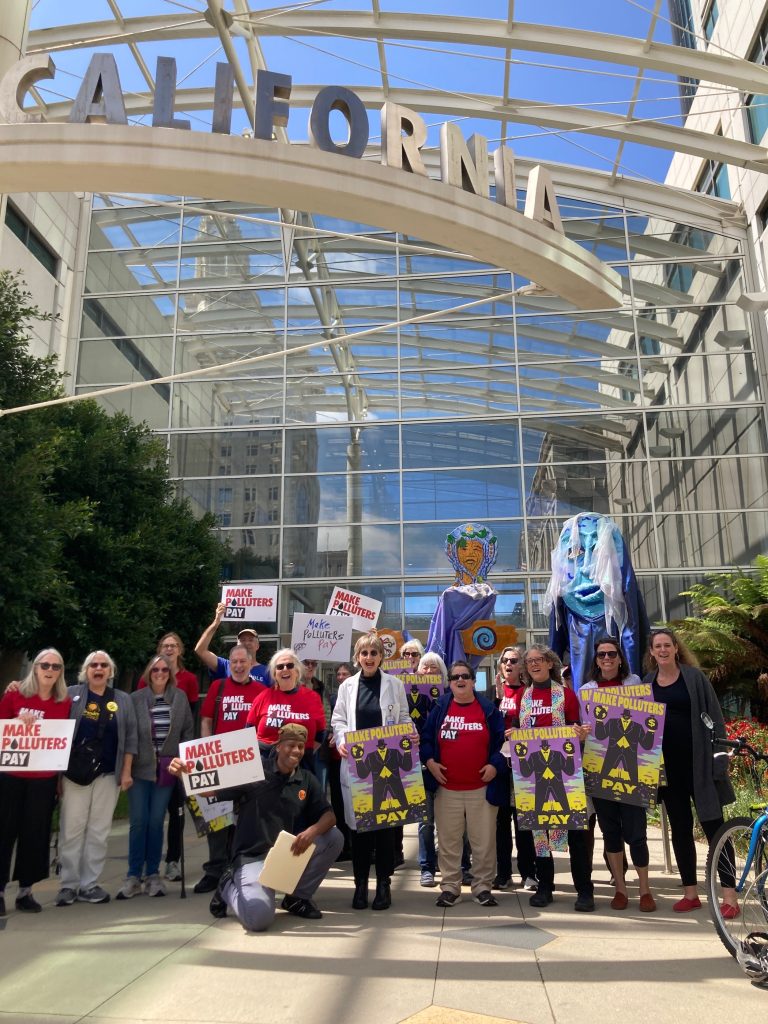
Bills Pending With Promise
There are at least two other bills that are still pending in the Maine and Massachusetts legislatures and Third Act working groups are actively working to get those passed.
Third Act Maine is collaborating with Maine Youth For Climate Justice, which is the lead organization putting forward the Maine Climate Superfund Act, as well as Maine’s Environmental Priorities Coalition, a statewide alliance of 39 conservation, climate action, and public health organizations. There was a Youth Day of Action at the Maine State House on April 17th where Third Act Mainers joined up with youth activists. The bill was introduced on April 25 and a public hearing will be scheduled early to mid May. The coalition will be working to pass this by the end of session on June 20, 2025. (photo from youth climate day)
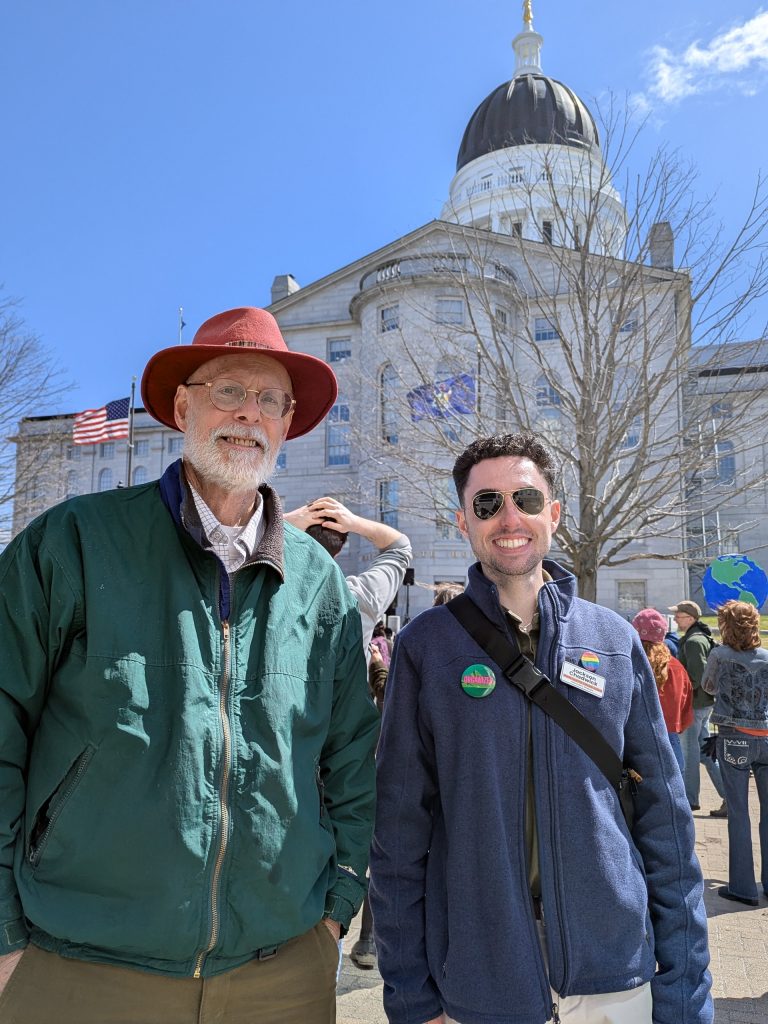
Third Act Massachusetts is working to build support for the Massachusetts Climate Change Adaptation Cost Recovery Act together with the statewide “Make Polluters Pay MA” coalition. Third Act MA and the coalition are gathering petition signatures and working on organizing a big in-person “lobby day.” Work is ongoing to persuade more towns and municipalities in Massachusetts to endorse the bill, and to activate more Bay Staters to engage with their state legislators. These bills have been introduced in a two-year session, and so there is more time to organize visible support before committee assignments and a vote in 2026.
Bills That Faced Pitfalls, But May Return
Other states introduced similar legislation in 2025, but some bills did not pass out of committee or get a hearing or a vote, such as in Tennessee and Connecticut. Third Act Connecticut collaborated with partners and got an op-ed published, but opposition from big business won out.
Third Act Oregon supported the Oregon Make Polluters Pay Act by hosting an educational webinar for Third Act Oregon supporters, submitting written testimony, and participating in a hearing on April 7, which included legal and climate experts as well as survivors of Oregon’s wildfires. Unfortunately, the bill died in the Senate Committee on Energy and Environment without a vote. Senator Khanh Pham, one of the authors, said she would continue to bring forward and advocate for this kind of legislation in future legislative sessions and that there is no time to waste for taking action to address climate change.
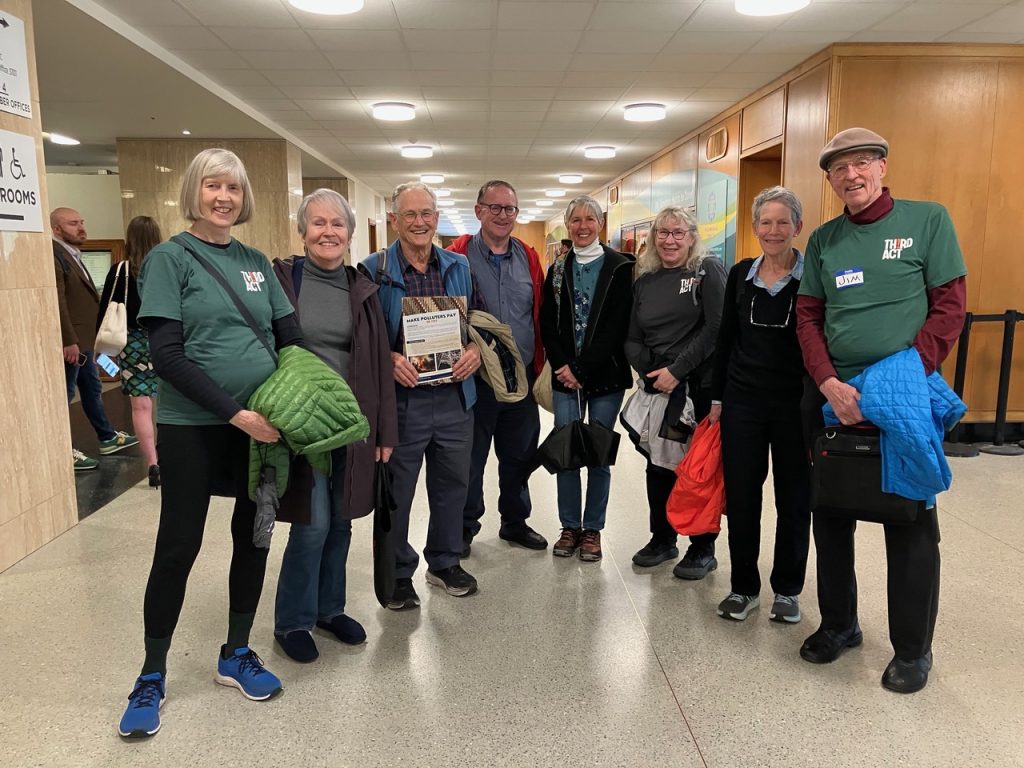
How You Can Help
One indication of both the promise for advancing climate resilience and the threat that “Make Polluters Pay” bills pose to the fossil fuel industry is that the Trump Administration has singled out these laws and signed an Executive Order directing the Attorney General to go after states’ climate laws. The House also passed a bill that would give “blanket immunity” to Big Oil and fossil fuel companies from any lawsuits or legislation striving to hold them accountable for their contributions to climate change, impacts, and damages. That bill is pending in the Senate, and we have an opportunity to kill it because it will unlikely get the full 60 votes needed to overcome a filibuster.
So, while there are several bills still working their way through state legislatures – and you can join a Third Act Working Group to get more involved in your state, people all across the US can sign this petition to Congress that will get delivered to Senators and ask them to oppose this Big Oil bailout. We can’t give this toxic industry any more free passes when our communities are burning, flooding, and being destroyed by climate change.
